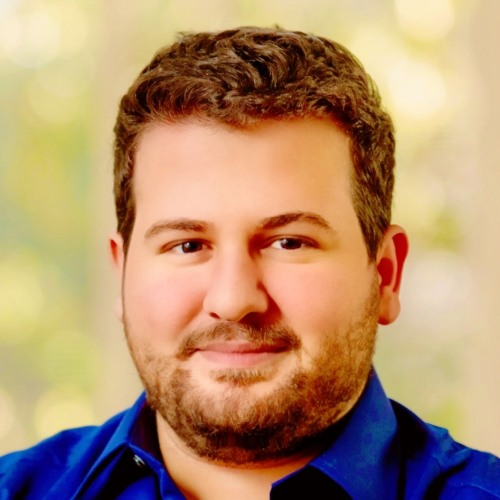Exchange Institution: Hospitál Regional Universitario José María Cabral y Báez
Description: In 2004, the Brown Department of Medicine entered into an educational exchange agreement with the Department of Internal Medicine at Cabral y Baez in Santiago, Dominican Republic. In choosing Cabral y Baez as an educational exchange site, the Department considered the relevance of an experience in the Dominican Republic to our patient population in Providence, the relative ease of travel to Santiago, and the desire of many Brown internal medicine residents and medical students to gain international experience in a Spanish-speaking country. At Cabral, we found internal medicine colleagues eager to partner with us in a mutually beneficial partnership and bilateral educational exchange program.
Hospitál Regional Universitario José María Cabral y Báez (HRUJMCB) is a public regional hospital in Santiago de los Caballeros serving as the main tertiary care center for the northern half of the Dominican Republic. It is also the main teaching hospital for the three medical schools located in Santiago.
Annually, residents from Cabral y Baez also rotate through the Brown Hospitals in Rhode Island. One of the responsibilities of medical students and residents selected to participate in the exchange is to assist Cabral residents who visit Brown.
Details:
- Duration: 4 weeks elective (February 2nd to February 27th, 2026)
- No. of students: 4 students per year
- Travel Funding: Not Provided
- Housing: Provided
- Board: Not provided
- Language Requirement: Advanced Spanish*
Brown Faculty Liaison: Dr. Alexis Kearney, Associate Professor of Emergency Medicine, alexis_kearney@brown.edu
*Students interested, please contact Dr. Kearney and copy david_arango@brown.edu to schedule a Spanish language interview.
Additional information about DR exchange
CURRICULUM
All students will spend at least two weeks on the Internal Medicine Wards at Cabral y Baez. Additionally, students can customize their experience per their preferences by choosing to spend time on the following services: HIV clinic, Emergency Department, night float shift, ICU, and Subspecialty departments such as Hematology/Oncology, Neurology, and Cardiology, and resident outpatient clinics.
Traditionally, students are paired with PGY2s at Cabral who are proficient in English in order to help the Brown trainees through the week-long rotations. Usually, these PGY2s are also interested in participating in the exchange at RIH.
GOALS FOR MEDICAL STUDENTS & residents
- Understand the clinical presentation and management of common serious illnesses in the Dominican Republic, including dengue, leptospirosis, malaria, organophosphate poisoning, tuberculosis, and HIV infection
- Understand the structure of the Dominican healthcare system, the major causes of morbidity and mortality in the Dominican Republic, and how they differ from morbidity and mortality in the United States
- Understand the structure of medical education in the Dominican Republic
- Develop skill in the cost-effective evaluation of illness in a resource-scarce environment
- Develop skills in working within the medical education system at Cabral y Baez
- Increase understanding of Dominican culture
- Develop increased competence in the Spanish language
TYPICAL DAY ON THE GENERAL INTERNAL MEDICINE FLOORS AT CABRAL Y BAEZ HOSPITAL
- Sign-Out: Known as "la entrega de la guardia", the PGY1s that were on for night float ("en servicio") give sign out on all admitted patients to the day teams and overnight updates on any patients previously on the wards.
- Morning Report led by Residents/Grand Rounds given by Attendings: Sign out is followed by a lecture given by a senior resident on a particular topic or case. These lectures provide good exposure to medical Spanish in a controlled setting with PowerPoint slides. At the end of each lecture, there is a brief discussion/questions session led by the chief resident.
- Weekly Grand Rounds are given by a senior attending. Most often, the attending presents 1-2 interesting cases that are currently or were recently on the wards. The attending presents the initial H+P of the patient along with a differential diagnosis, management, followed by an academic conversation involving senior residents and other attending physicians
- Rounds with Attending Physician or Resident Teams: Resident teams will round after the lecture and formally present new patients and quickly follow up on older patients on their service.
- Afternoon Lecture: Conferences in the afternoon continue with focused lectures given by a resident or medical student.
- Completing any remaining tasks: After AM rounds, the team splits off to write progress notes, work on the sign-out sheet, and complete the necessary tasks on each patient (labs and imaging studies). If there is an interesting case on the service, you can continue to follow the patient after rounds by reading through their chart, chatting to the patient about their situation, or by assisting the medical students with their tasks.
ADDITIONAL MEDICAL SERVICES THAT BROWN TRAINEES CAN ROTATE ON:
- Clínica de Enfermedades de Inmunología (HIV clinic), Hospitál Cabral y Baéz: The HIV clinic in Hospitál Cabral y Baéz is run by Dra. Claudia Rodriguez, one of Brown’s main contacts here in the Dominican Republic. Patients are seen by Pasantes, which are medical trainees doing a mandatory year of service before entering residency.
- Trainees will have opportunity to practice physical exam as well as history taking in Spanish.
- Observe and help with clinic visits during regular morning clinic hours.
- Choose a patient to present later during the day for “Brown Rounds”
- Emergency Room: If you want to see what happens to people in a country where there are very few enforced traffic laws, stoplights are mere suggestions, and people tear around recklessly on motorbikes without helmets, you can spend an afternoon (or night) with the internal medicine residents in the emergency room.
- Night float shift
- ICU
- Subspecialty departments such as Hematology/Oncology, Neurology, and Cardiology
- Resident outpatient clinics
